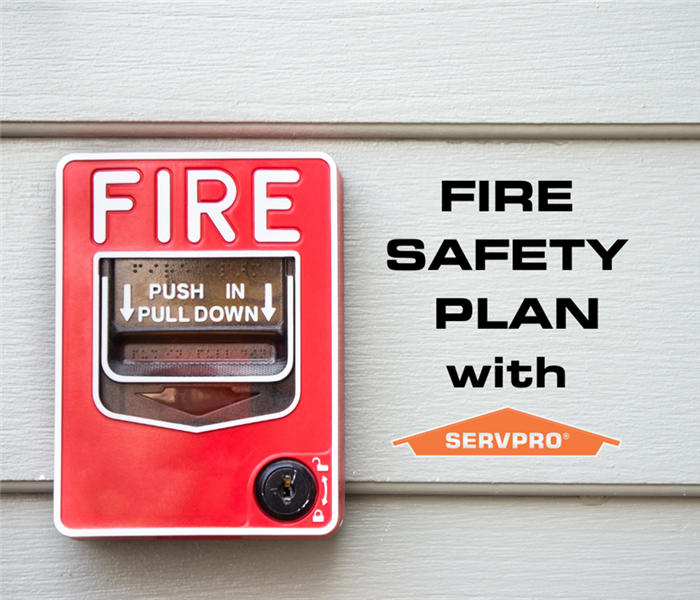Fire Safety Plan
9/17/2020 (Permalink)
Keep your family/ customers/ employees safe in the upcoming months when fires occur the most!
Why should you have a fire safety plan?
When a fire occurs, the first reaction can be to panic! The best reason is have a plan in place is to take the panic out of the situation. If you know exactly what to do and how to handle it --there is a better outcome for the people and place the fire has occurred.
Here are a few tips from the Fire Safety Protection Association on the best way to create that plan for you:
Escape planning tips
- Pull together everyone in your household and make a plan. Walk through your home and inspect all possible exits and escape routes. Households with children should consider drawing a floor plan of your home, marking two ways out of each room, including windows and doors. Also, mark the location of each smoke alarm.
- A closed door may slow the spread of smoke, heat and fire. Install smoke alarms in every sleeping room, outside each sleeping area and on every level of the home. NFPA 72, National Fire Alarm Code® requires interconnected smoke alarms throughout the home. When one sounds, they all sound.
- When you walk through your plan, check to make sure the escape routes are clear and doors and windows can be opened easily.
- Choose an outside meeting place (i.e. neighbor's house, a light post, mailbox, or stop sign) a safe distance in front of your home where everyone can meet after they've escaped.
- Go outside to see if your street number is clearly visible from the road. If not, paint it on the curb or install house numbers to ensure that responding emergency personnel can find your home.
- Have everyone memorize the emergency phone number of the fire department.
- If there are infants, older adults, or family members with mobility limitations, make sure that someone is assigned to assist them in the fire drill and in the event of an emergency.
Put your plan to the test
- Practice your home fire escape plan twice a year, making the drill as realistic as possible.
- Make arrangements in your plan for anyone in your home who has a disability.
- Allow children to master fire escape planning and practice before holding a fire drill at night when they are sleeping. The objective is to practice, not to frighten, so telling children.
- It's important to determine during the drill whether children and others can readily waken to the sound of the smoke alarm. If they fail to awaken, make sure that someone is assigned to wake them up as part of the drill and in a real emergency situation.
If you follow these tips, your chance during a fire is much more likely going to be a positive one. It is always better to have a plan in place, then to not have one and wish you had when an emergency happens. We never think an emergency or disaster will happen until it happens to us! We want you to keep your home or business safe. Follow these tips and keep up to date on current fire safety information from your local fire departments!






 24/7 Emergency Service
24/7 Emergency Service
